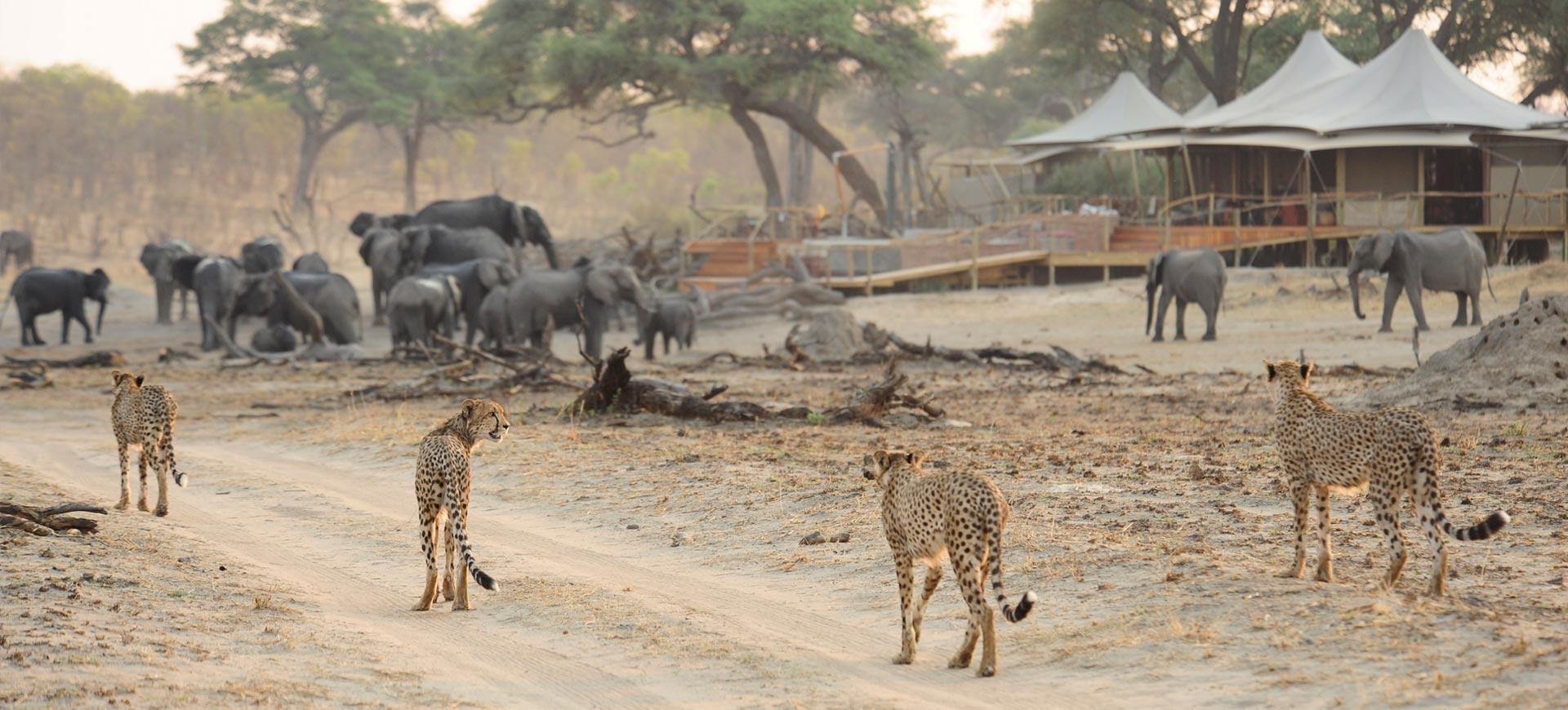Africa-Press – Botswana. Influx of buffaloes around Nata, Sowa Town area (Zone 3b), Dukwi area (Zone 3c) and Mosetse area (Zone 6a) has led to the government instituting a movement protocol for cloven-hooved animals in the affected areas with immediate effect.
Assistant Minister of Agriculture, Mr Molebatsi Molebatsi, told residents of Kalakamati and Mbalambi during kgotla meetings that around 200 herd of buffaloes were suspected to have invaded those areas from Hwange National Park in Zimbabwe on September 9. An emergency response team was organised to mop out the buffaloes from these areas and serological surveillance for Foot and Mouth Disease (FMD) was conducted to ensure that the area was not infested.
He said with concerted efforts from the Department of Wildlife and National Parks, Botswana Police Services and Botswana Defence Force chopper, they managed to push them back while some were loaded into trucks and relocated in local parks and game reserves.
“The buffaloes were seen tired and exhausted from travelling a long distance in search of water,” he said. On other developments, he said the last seating of Parliament discussed and approved the Bill on the Meat Industry Regulatory Authority (MIRA) adding that the Bill was to protect the meat industry.
He also advised residents of the two villages that ear tags (baits) were not available pending complaints in the tendering process and temporary direct purchasing.
Nevertheless, he complained that while ear tags were to be inserted when the calf was six months old, some cattle reached three years without them.
Mr Molebatsi said the Ministry of Agriculture was faced with the production of quality farm produce to take the economy from upper middle class to higher income economy. Further, he advised them to venture into projects other than livestock such as crops that would bring more proceeds.
He noted that at independence, agriculture contributed 30 per cent of the Gross Domestic Product (GDP) but now it was contributing only two per cent.
Mr Molebatsi explained that initially there was the Accelerated Rainfed Arable Programme (ARAP), which started in 1986, and the Arable Land Development Programme (ALDEP), which were initiated by the government in response to the prolonged drought.
The programmes were succeeded by the Integrated Support Programme for Arable Agriculture Development (ISPAAD).
ALDEP II was terminated on June 30, 2008 and replaced with ISPAAD to address challenges facing arable farmers and the inherent low productivity of the arable sub-sector.
With the advent of ISPAAD, it was envisaged that the performance of the arable sub-sector would be greatly improved by establishing agricultural service centres and assisting arable farmers to acquire requisite inputs and draught power to undertake field operations.
Mr Molebatsi noted that as time went on, ISPAAD was terminated as it was found to be expensive and reviewed to give birth to soon to be launch Temo Letlotlo.
“In this programme, proper monitoring will be conducted through the use of modern technologies to ensure proper care to those who are enrolled with Temo Letlotlo,” he said.
In Kalakamati, Phillip Moffat wanted to know if it was possible to sell, slaughter cattle or give as bride price when they did not have ear tags (baits).
Mr Gift Otumile complained that public officers spent their entire time in offices not conducting outreach programmes or taking services to the people.
He said there was a mismatch in providing programmes as milk production remained a concern and there were no programmes assisting in such ventures, adding that through the Youth Development Fund, the youth were given funds to start small stock projects, but would stay in Gaborone abandoning the projects. Mr Morena Moatlhodi urged government to look at subsidising drilling of boreholes, as it is expensive to drill.
At Mbalambi, the village development committee chairperson, Mr James Zibani, told the Assistant Minister that this year they harvested nothing as marauding elephants invaded their fields since December 18 last year and destroyed crops.
He said the elephants also destroyed border fences and when livestock crossed to and fro Zimbabwe, the owner would be given compensation of P700, which could not even buy a goat.
For More News And Analysis About Botswana Follow Africa-Press






